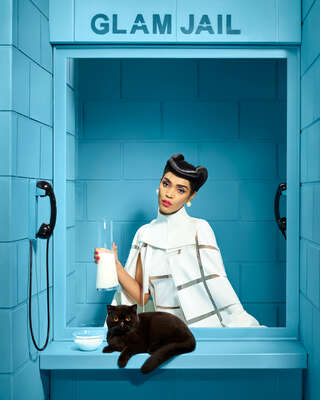Introduction
At first glance, Pol Kurucz’s work appears theatrical, artfully staged, provocative, and almost satirical. Upon closer inspection, however, every piece expresses a social criticism. With his artist collective Kolor Collective Kurucz creates expressive photographs intended to create giant question marks on conventional values.
The visual allegories are loud, colorful, and impossible to miss. Kurucz addresses the issues that deserve more attention in society including stereotypes, racism, and misogyny. Kurucz says viewers should “interpret the photographs in their own way,” and that he does not want to interfere.
The art and drag scenes in Brazil provide great inspiration for Kurucz’s creative process. Brazil is “livelier, crazier, and more colorful than any other country,” the artist says. The viewer is reminded of the David LaChapelle’s eccentric Pop Art aesthetic, which he also used to ask questions about gender and status. Viewers are also reminded of Miles Aldridge’s cinematic photography style.
The messages are manifold. Kurucz points out how underrepresented darker-skinned women are in Brazilian politics, as well as the unrealistic beauty standards that young girls face. He challenges conventional values, showing the contrast between stylized glamor and restrictive norms – altering our very understanding of “normality.”
Bio
Pol Kurucz was born in Budapest and spent his childhood in Paris. A stage director and photographer, in 2011 he founded the artist collective, Kolor Collective, with which he tackles themes such as afro-feminism and consumerism. His photographs have appeared in major publications including Vogue, ELLE, and Nylon. Kurucz has lived in Bahrain and Portugal, but is now based in Sao Paolo.


